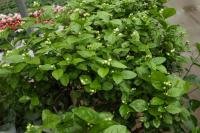1、 Common species
1. Ammonium nitrogen fertilizer: including ammonium bicarbonate, ammonium sulfate, ammonium chloride, ammonia and liquid ammonia. The advantage of this kind of nitrogen fertilizer is that it is easy to be absorbed by the soil, but it also has some disadvantages. For example, it is easy to oxidize into nitrate and lose its original effect. At the same time, high concentration also has a harmful effect on crops, and can inhibit the absorption of magnesium, potassium, calcium and other elements. And it is easy to volatilize in alkaline soil

2. Nitrate nitrogen fertilizer: including sodium nitrate, calcium nitrate, ammonium nitrate, etc. This kind of nitrogen fertilizer is more soluble in water, but it is not easy to preserve in the soil and is easy to become volatile gas. Therefore, watering should be carried out during use to accelerate absorption
3. Ammonium nitrate nitrogen fertilizer: mainly ammonium nitrate and its related compounds

4. Amide nitrogen fertilizer: commonly known as urea, it has a high nitrogen content, but it is not applicable to all crops. Nitrogen can easily lead to plant overgrowth and delay flowering and fruiting
2、 Effect

Nitrogen fertilizer can promote the growth of plants. Nitrogen deficiency often leads to short plants, thin branches, fewer roots, yellow leaves and no luster. Excessive nitrogen fertilizer will make it grow too lush, hinder its flowering and fruiting, and affect the yield of some crops

 jackfruit
jackfruit snake plant
snake plant hibiscus
hibiscus hydrangea
hydrangea lavender
lavender Green roses climb al...
Green roses climb al... If you don't pay att...
If you don't pay att... Management of four g...
Management of four g...
































